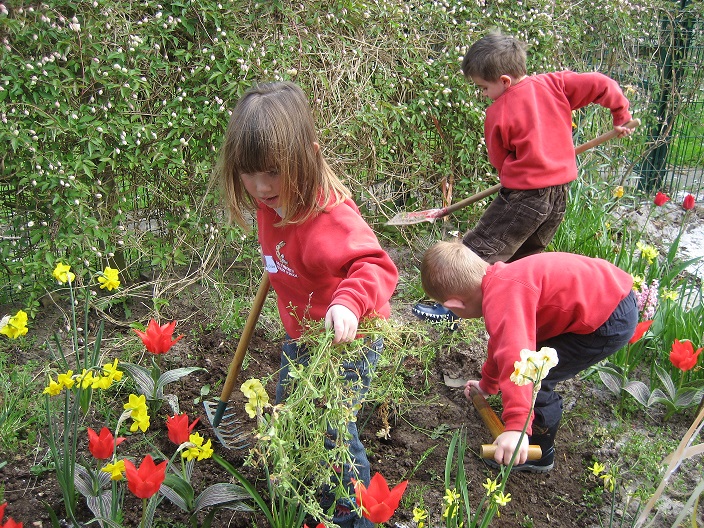The Eco-Schools programme has launched a global K-12 environmental literacy initiative focused on Green STEM.
Fruits of the Global Scrapbook Campaign
It has been a Diamond Decade for Flower Valley’s centre
Flower Valley’s Early Learning Centre has become the first school in the Overberg region of South Africa to receive the Eco-Schools Diamond Decade Award. The award celebrates 10 years of environmental education, as per the Eco-Schools curriculum, and is presented by the Wildlife and Environment Society of South Africa (Wessa).
Flower Valley Conservation Trust is a non-profit organisation operating across the Cape Floristic Region of South Africa. The Trust works to protect fynbos landscapes, jobs dependent on fynbos, and to support a holistic education to pre-school centres in the region. Fynbos is a shrubby vegetation that is picked for bouquets sold around the world, although it faces many threats, with many species already extinct.
When the Trust launched in 1999, an Early Learning Centre was also started on Flower Valley Farm, the home of the Trust in the Western Cape. This pre-school provided a safe learning environment for the children of fynbos harvesters at the time. Today, the centre cares for 27 children aged two to six from across the region, including the rural areas and the small towns situated nearby.
According to the Wessa Eco-Schools team, the Flower Valley centre is providing young children passing through the centre “a good and sound environmental ethic”.
The centre was praised for its well-stocked vegetable garden, medicinal plants section, water-wise garden and scented garden. “This must bring great joy to all at school and to your visitors.” The centre teaches youngsters how to plant their own gardens, compost, recycle, upcycle and about sustainable water use, among other themes.
Wessa coordinates the Eco-Schools programme in South Africa. More than 10,000 schools participate in the programme across the country.
Young Conservation Heroes Call for Protection of the Planet
Two Eco-Schools students took part in Sembang@WWF, a bilingual story-telling platform that empowers youths and students to share their ideas on environmental sustainability activities with a larger audience.
They studied relevant current issues, and had to undergo numerous rehearsals and tests before sharing their presentations with the audience. The content of their presentations has been guided and verified by WWF-Malaysia in-house Experts.
WWF-Malaysia's Education for Sustainable Development (ESD) Programme hosted the second edition of Sembang@WWF 2016 in conjunction with the Earth Day on 23 April 2016.
© WWF-Malaysia / ESD
Ng Yong Zheng, who represented the Eco-Schools Progamme of WWF-Malaysia, emphasised the need to address climate change through his talk, 'We Are Living in South Haze Asia'. He shared his views on the impact of haze from the perspective of a 17-year old student.
"We cannot depend on environmental NGOs only to overcome polution. It is everyone’s responsibility if all of us want clean air to breathe.
We must ensure corporations, big or small, embassies and governmental agencies to work together with the people to ensure this problem can be solved"
© WWF-Malaysia / ESD
In showing their commitment to WWF-Malaysia’s 'My Fin My Life' campaign, Khou Jerome and Nurul Syazwani Mohammad Zikri, both representatives from Eco-Institutes Programme, and Jessadine Rose Baluyot, from the Eco-Schools Programme, took the challenge to call people to stop shark finning and shark fin soup consumption.
The whole article can be found at the following link: Young Conservation Heroes Call for Protection of the Planet through Sembang@WWF Storytelling Platform
© WWF-Malaysia / ESD
How our Kenyan member, KOEE, is working to reduce the heat in Africa
Practicing Education for Sustainable Development
through Eco-Schools
Joto Afrika, meaning 'Africa is feeling the heat' in Swahili, is a series of briefing and online resources reporting on climate change and climate adaptation in sub-Saharan Africa. It draws lessons, experiences and practical information from across several sub-Saharan African countries.
Joto Afrika was conceptualised, developed and produced by the Arid Lands Information Network (ALIN), Kenya, in partnership with IDS Knowledge Services and the AfricaAdapt Network.
An article about Eco-Schools Kenya appears on page 8, 'Practicing Education for Sustainable Development through Eco-Schools'.
It presents the programme and describes a particularly meaningful case story from St. Mary's Girls' Primary School in Machakos County, which managed to reduce the amount of firewood used per term after an environmental audit conducted by the students. More resource efficiency has led to an improvement of the school feeding programme, raising the number of girls enrolled from 50 to 200.
The chef at St. Mary's Girls Primary School in Machakos preparing a meal using an improved energy saving jiko. © David Wandabi
The full publication can be found at the following link: Issue 17 - Green Growth: An Overview of the Framework for Development
Inviting papers for International Conference - ESD for Transforming Education for Children and Youth
Dear Madam/Sir,
Education for Sustainable Development (ESD) has got a wide recognition during the Decade of Education for Sustainable Development as an effective process for transforming education for children and youth.
The International Conference ‘ESD for transforming Education for Children and Youth’ will be held at the Centre for Environment Education (CEE), Ahmedabad, India from 16-18 September 2016. The conference provides a platform to delegates from over 80 countries to present their experiences and research work. The conference aims at sharing research and experiences about engaging youth and children in both formal and non-formal settings for EE/ESD, and their potential to transform education.
Participants can choose the mode of presentation from the ones mentioned below:
- Oral Presentations
- Poster Presentations – They could be used to present an idea/concept/research
- Round Table Discussions
The objective of the conference is to bring together the global experience and expertise on the following Thematic Areas:
This is a good opportunity for researchers and organisations to share their experiences at the conference. To know more about the Paper submission procedure, please visit the website: http://ceeindia.org/esdconf/call for abstract.html
For any queries regarding the Paper submission, contact papers@ceeindia.org
Thanks and Regards,
Paper Committee
The Great Plant Hunt in Action, Green-Schools Ireland
© Green-Schools Ireland
On 29 February 2016, Rachel Boyle International LEAF Director and Project Manager for the Eco-Schools Toyota Biodiversity Educational Project, the Great Plant Hunt, travelled to Ireland to visit some of the participating schools. Bríd Conneely, International Eco-Schools Director and Ian Corbett, Marketing Manager, Toyota Ireland also attended.
The Great Plant Hunt is a joint initiative of Toyota Motor Europe and the Foundation for Environmental Education. The campaign includes practical activities based on resources developed by the Royal Botanic Gardens, Kew with funding from the Wellcome Trust. The campaign focuses on biodiversity with a particular emphasis on plants and their associated species. Initially, it is being run in ten countries throughout Europe, including Ireland. This year, the focus is on students aged 5-7.
© Green-Schools Ireland
National Operators are responsible for coordinating the project on the ground. National Operators engage with the participating schools and ensure the project is being implemented according to the guidelines. To begin the project, schools survey the students to assess the levels of awareness in relation to biodiversity and the chosen species. Schools then create Habitat Maps of their grounds and come up with innovative ways to help biodiversity and increase the levels of awareness amongst the students and wider community. Later in the school year, schools will reassess the levels of awareness to see if there has been an increase and remap the school grounds showing off any improvements made throughout the school year.
Méabh Boylan, Green-Schools Biodiversity Officer and Project Officer, with An Taisce, Ireland, arranged visits to two of the participating schools in the Dublin area. The schools visited were St. Gabriel’s National School, Ballyfermot and Mount Sackville, Chapelizod. Participating students were able to tell us about the importance of biodiversity and how plants are an important part of many life cycles, supporting insects, birds and mammals by providing food and habitats for nesting and shelter. Students proudly showed off the Habitat Maps they had created as part of their Review process and sang songs related to biodiversity.
© Green-Schools Ireland
Ms. Boylan brought live insects for the students to observe and sketch. This caused great excitement amongst the students and provided the perfect learning environment. Maria Kelly, Green-Schools Coordinator in St. Gabriel’s National School, and other participating teachers commented on the benefits of such workshops and how they helped to reach some of their teaching objectives.
© Green-Schools Ireland
Ian Corbett, Marketing Manager, Toyota Ireland: “Toyota is aware of the importance of environmental protection and biodiversity conservation globally. Toyota Ireland is delighted to have the opportunity to see, first hand, the wonderful work being done by schools on a national level, through The Great Plant Hunt project. It’s great to see students of such a young age so interested and aware of Ireland’s native biodiversity.’’
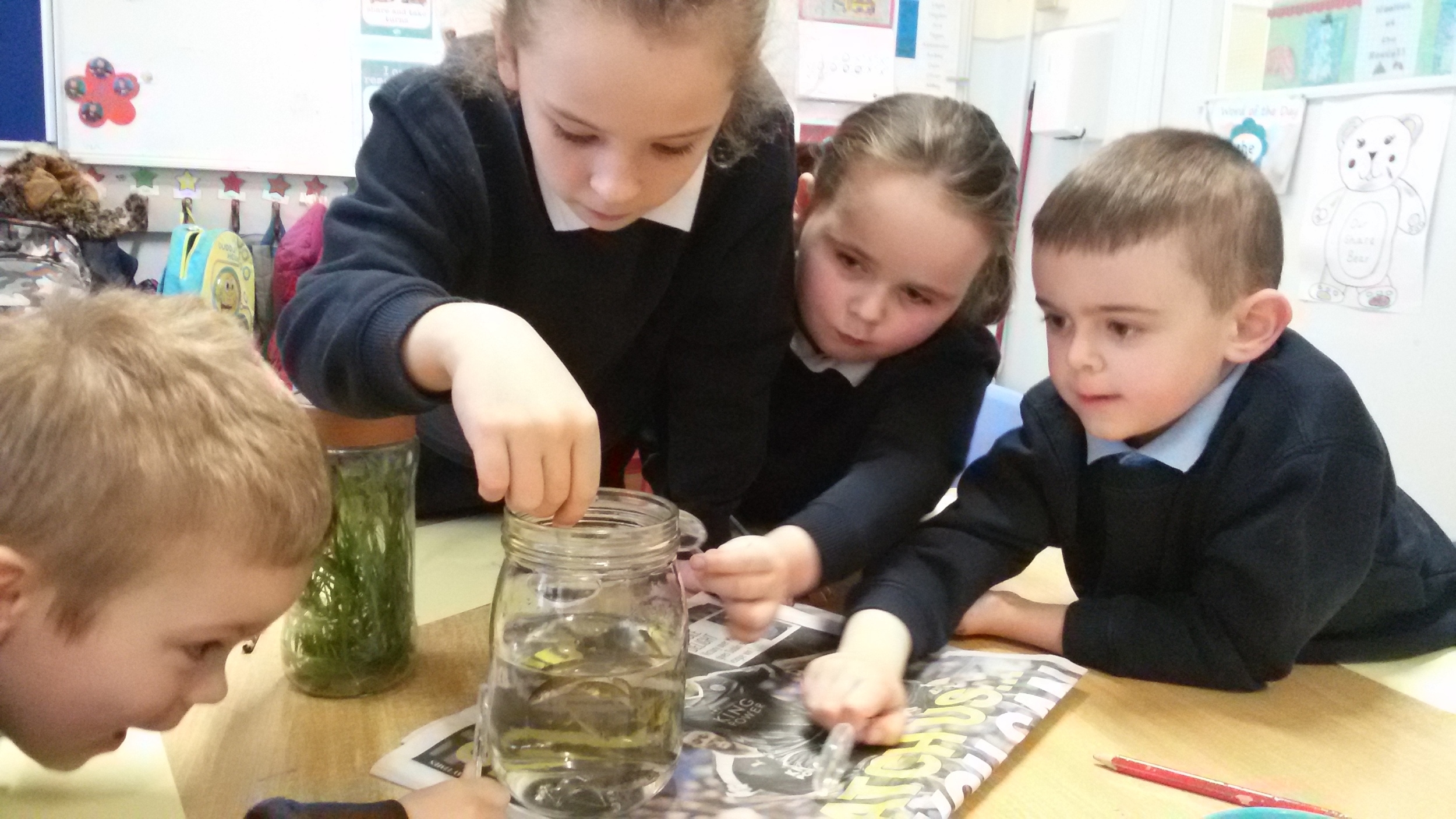
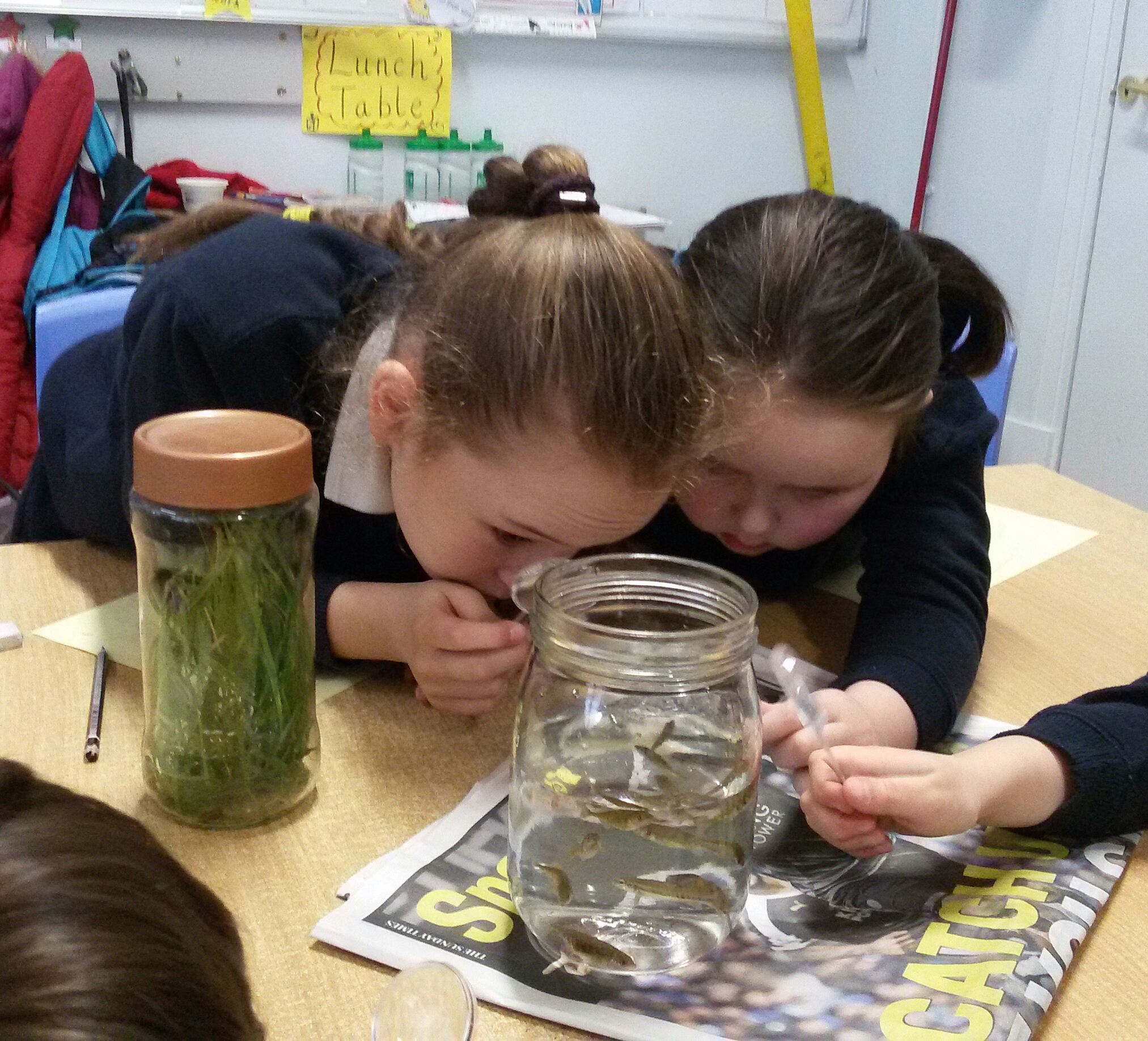
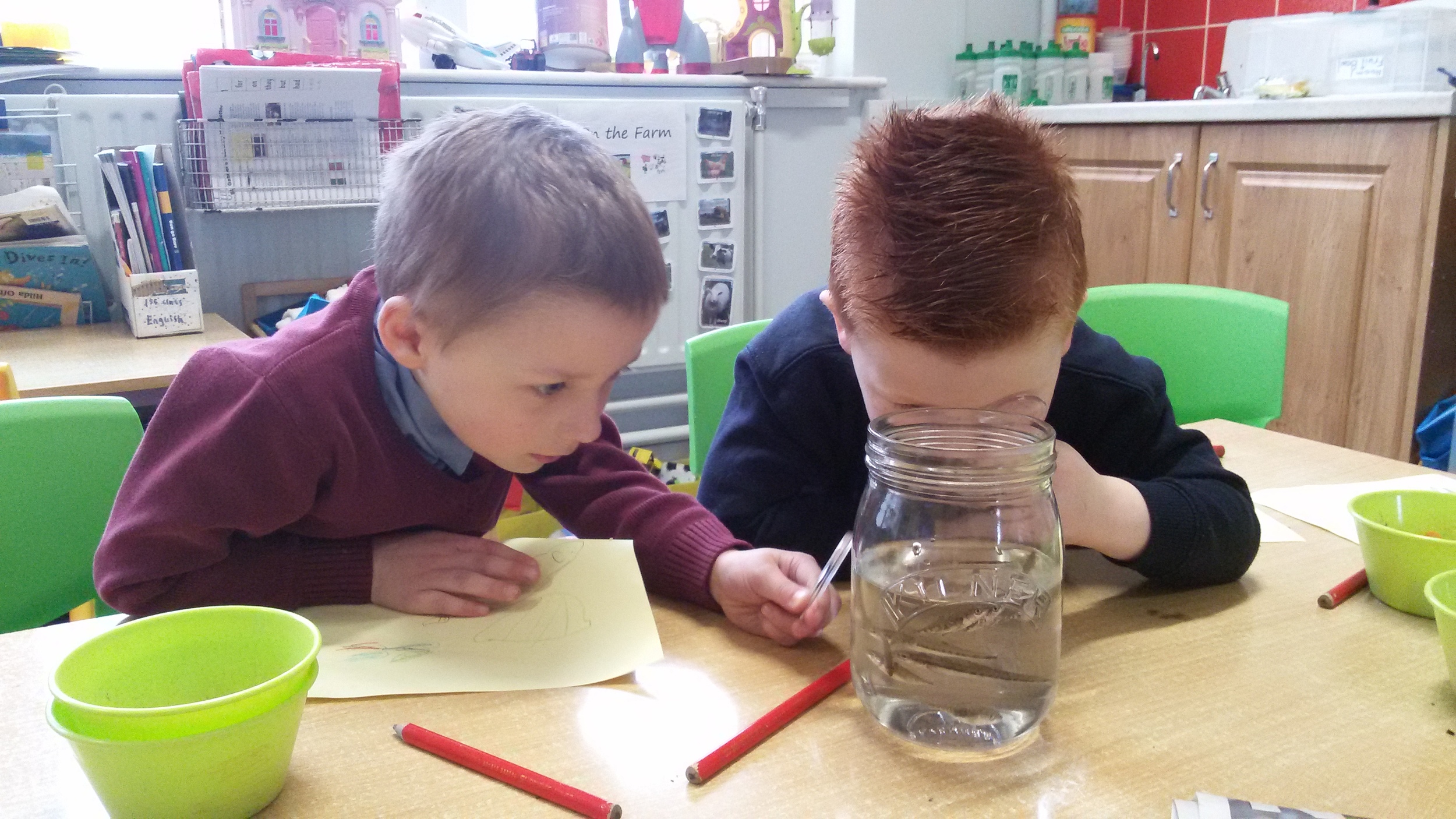
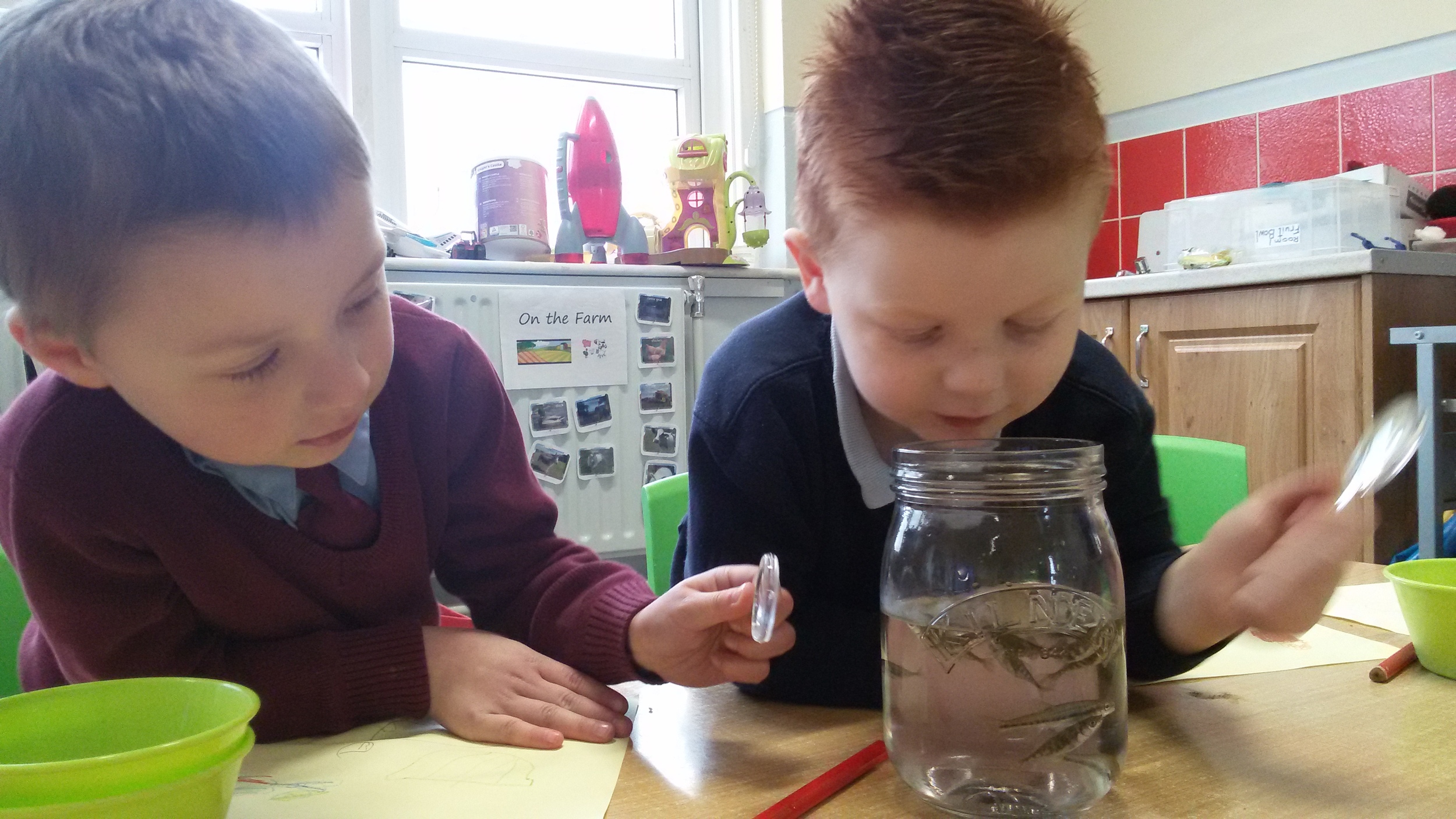
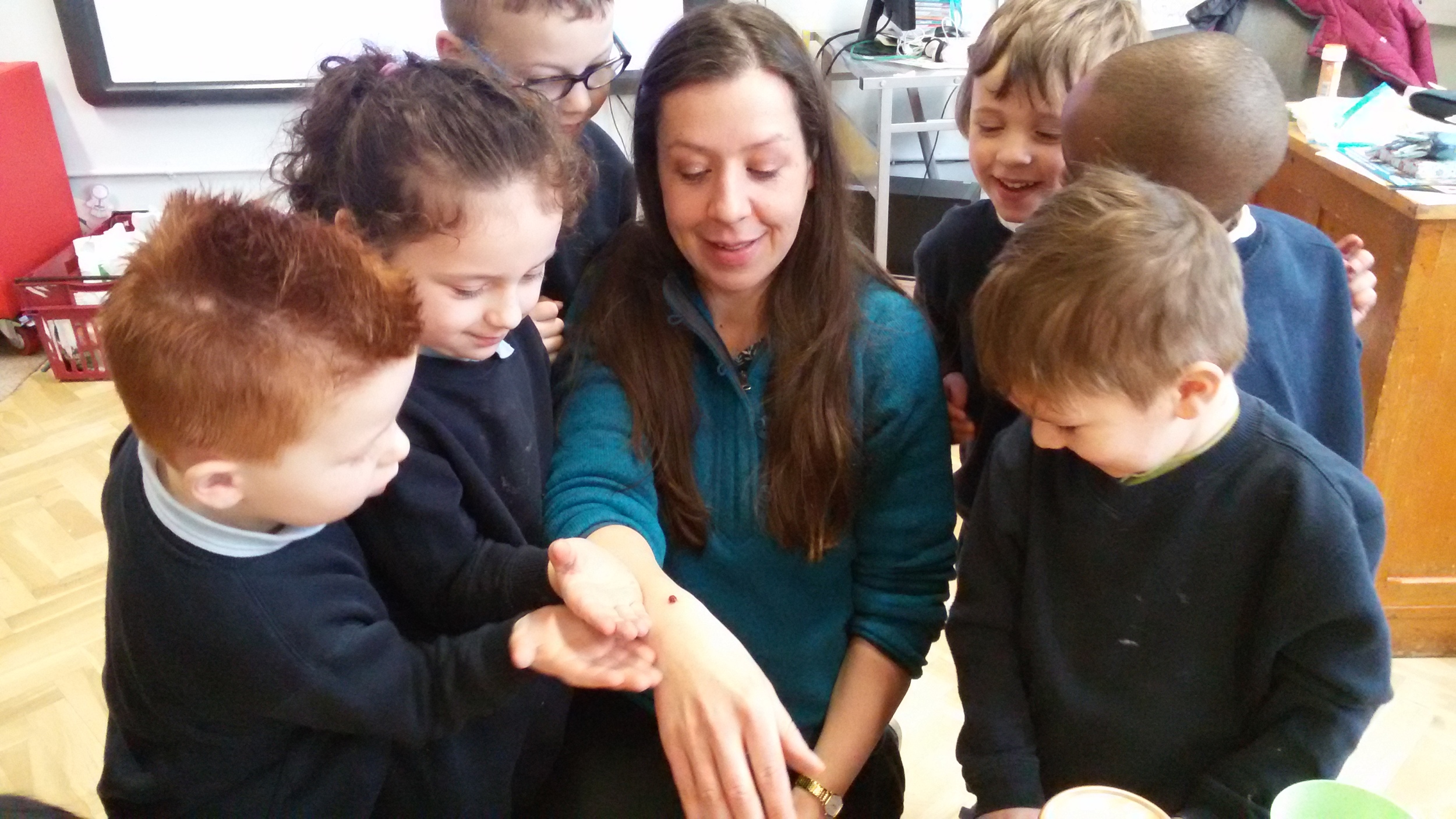
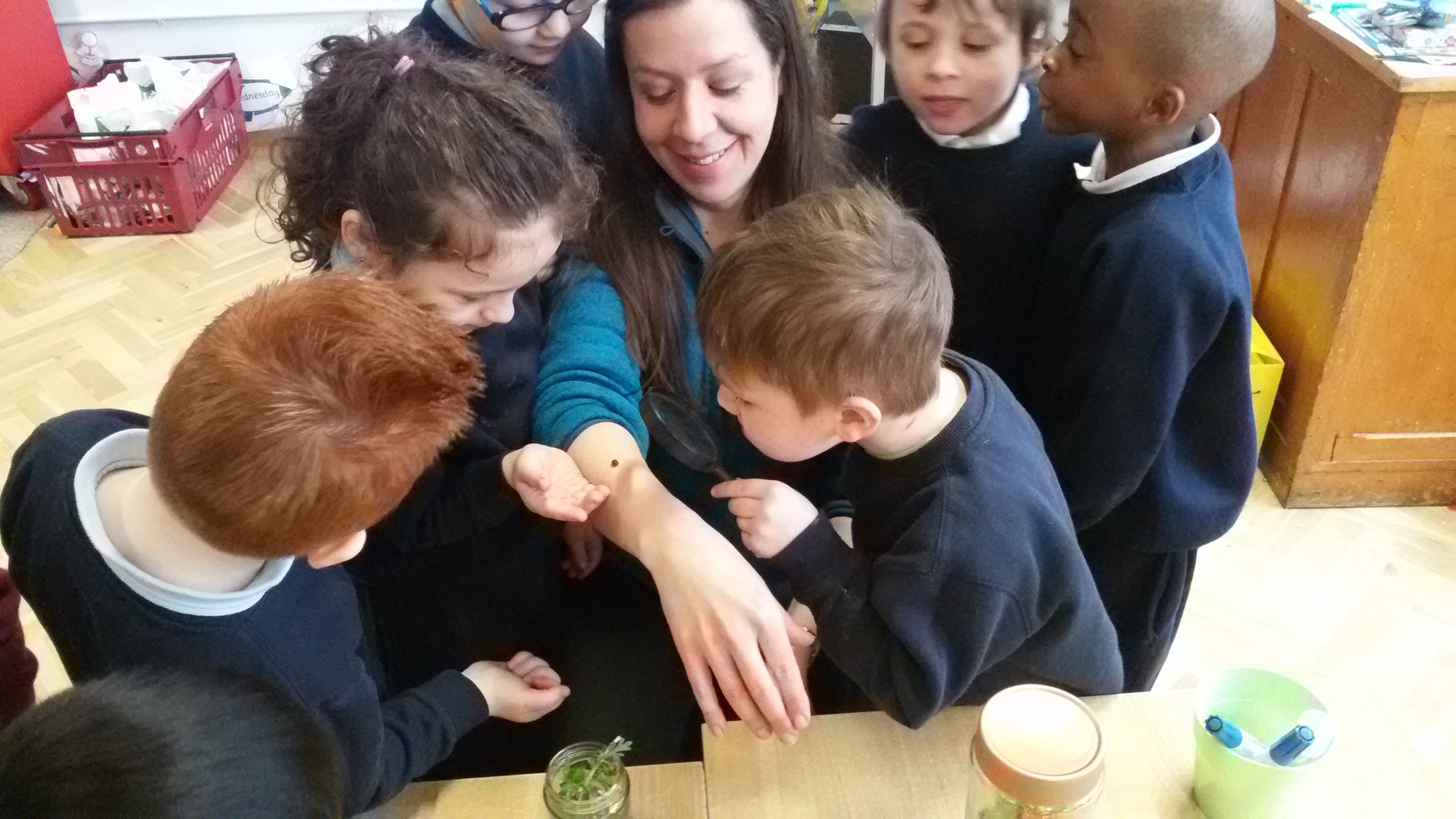
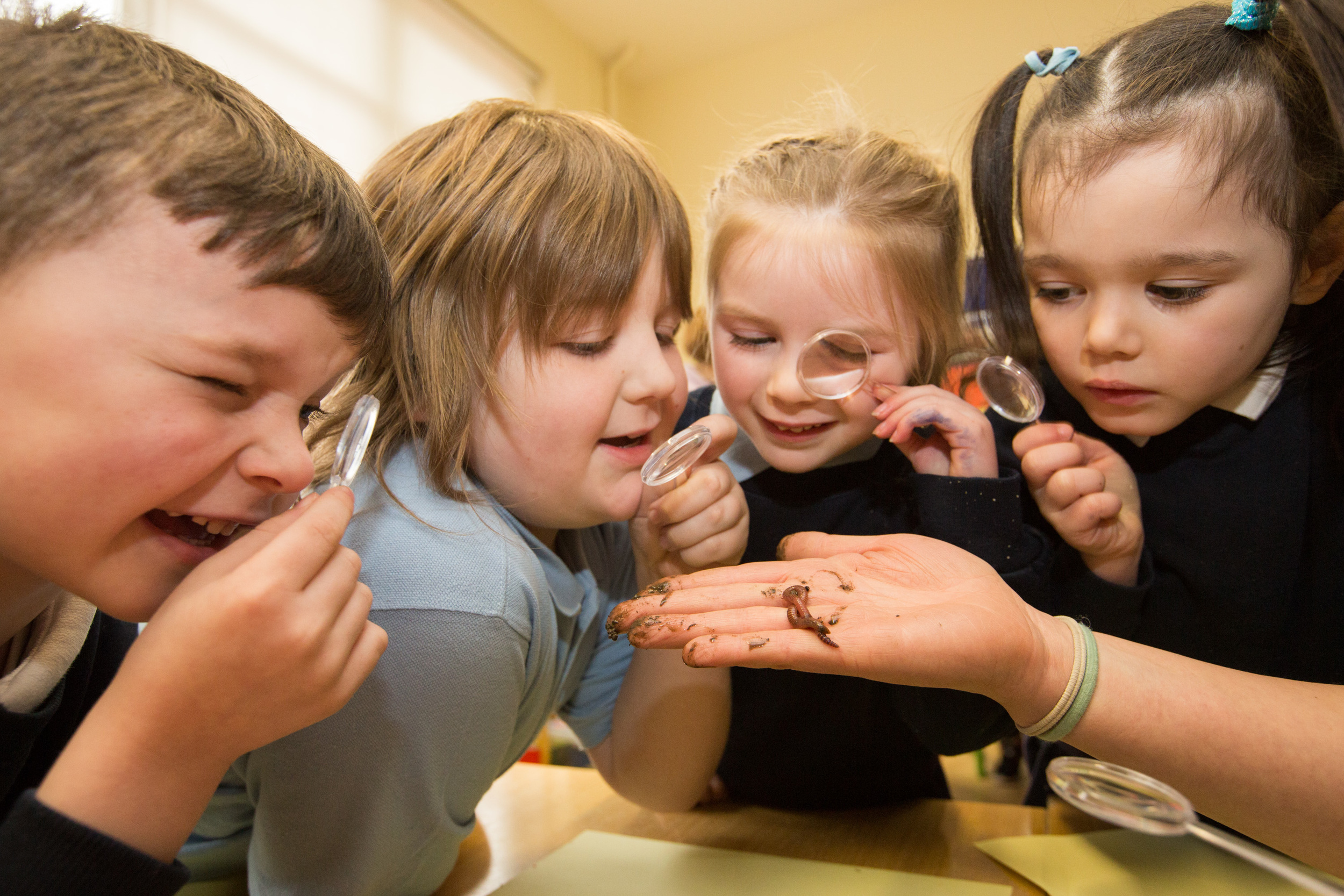
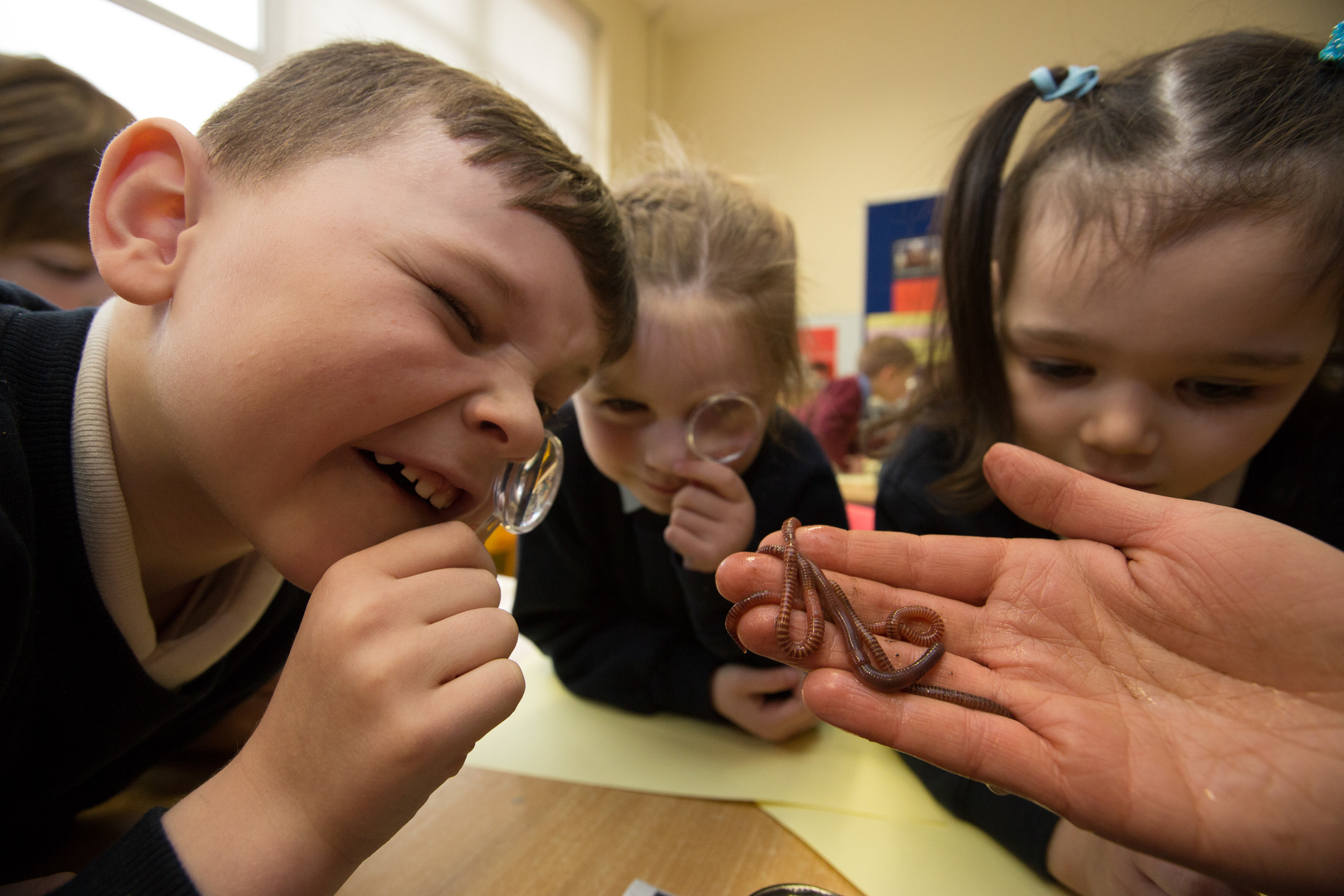
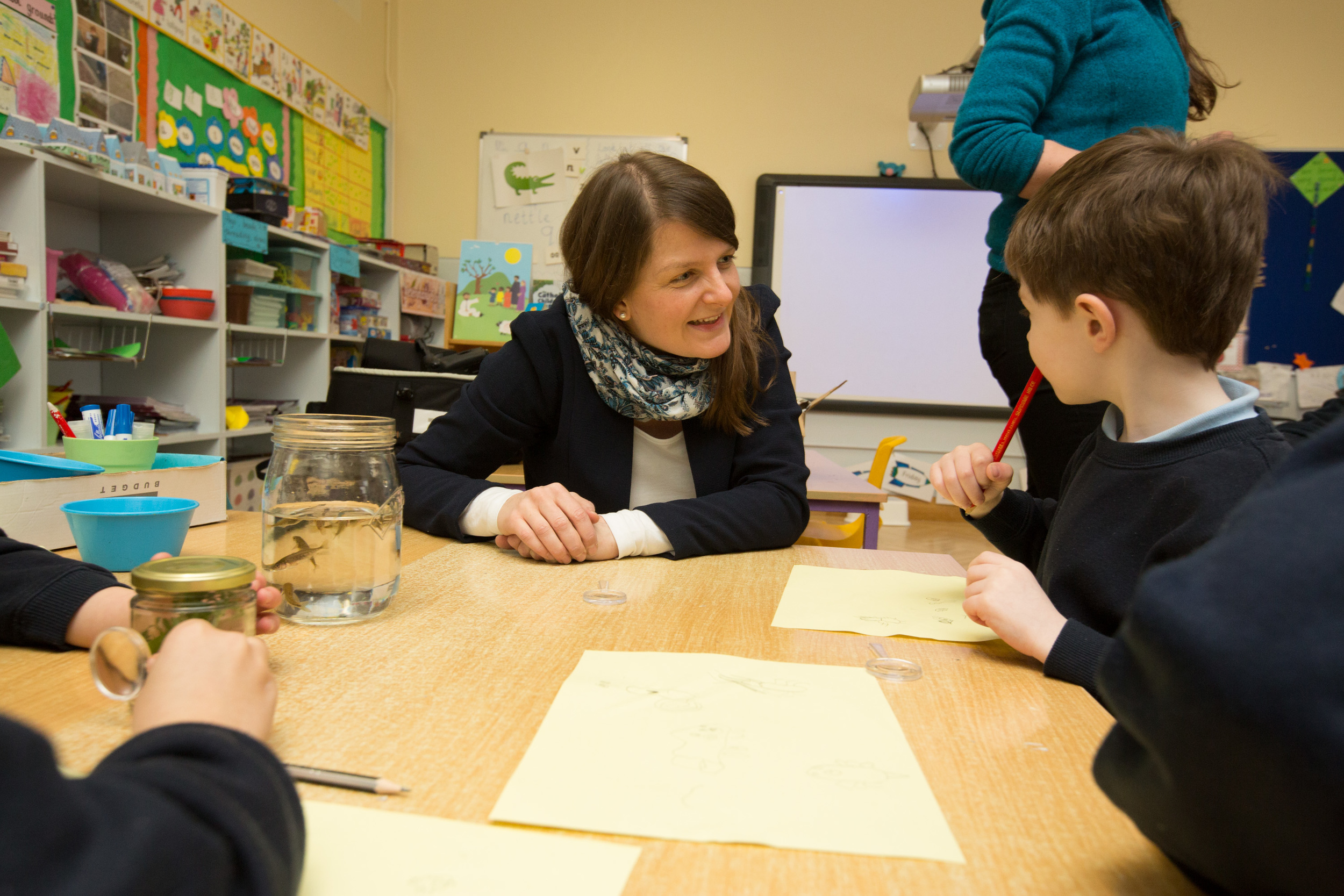
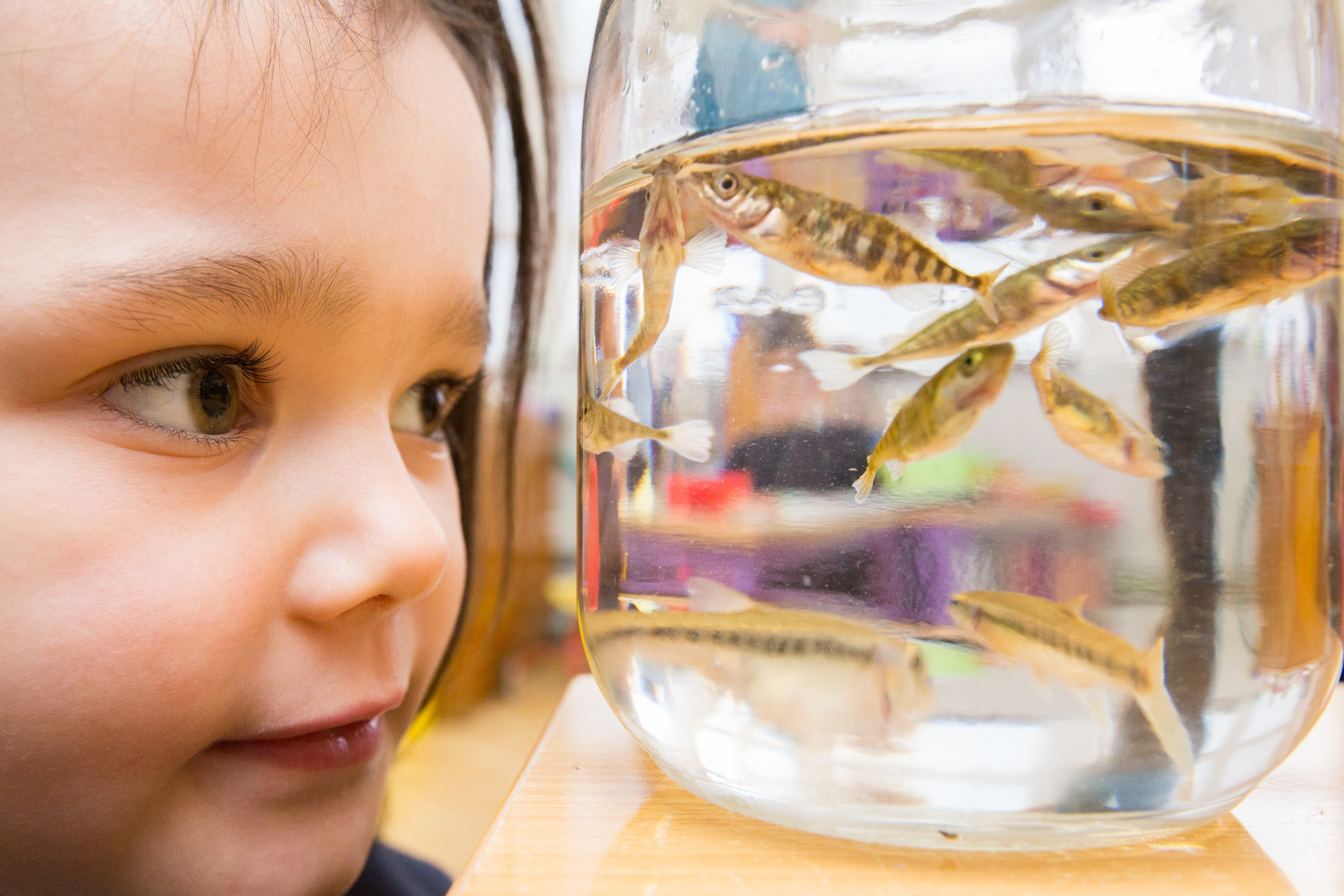
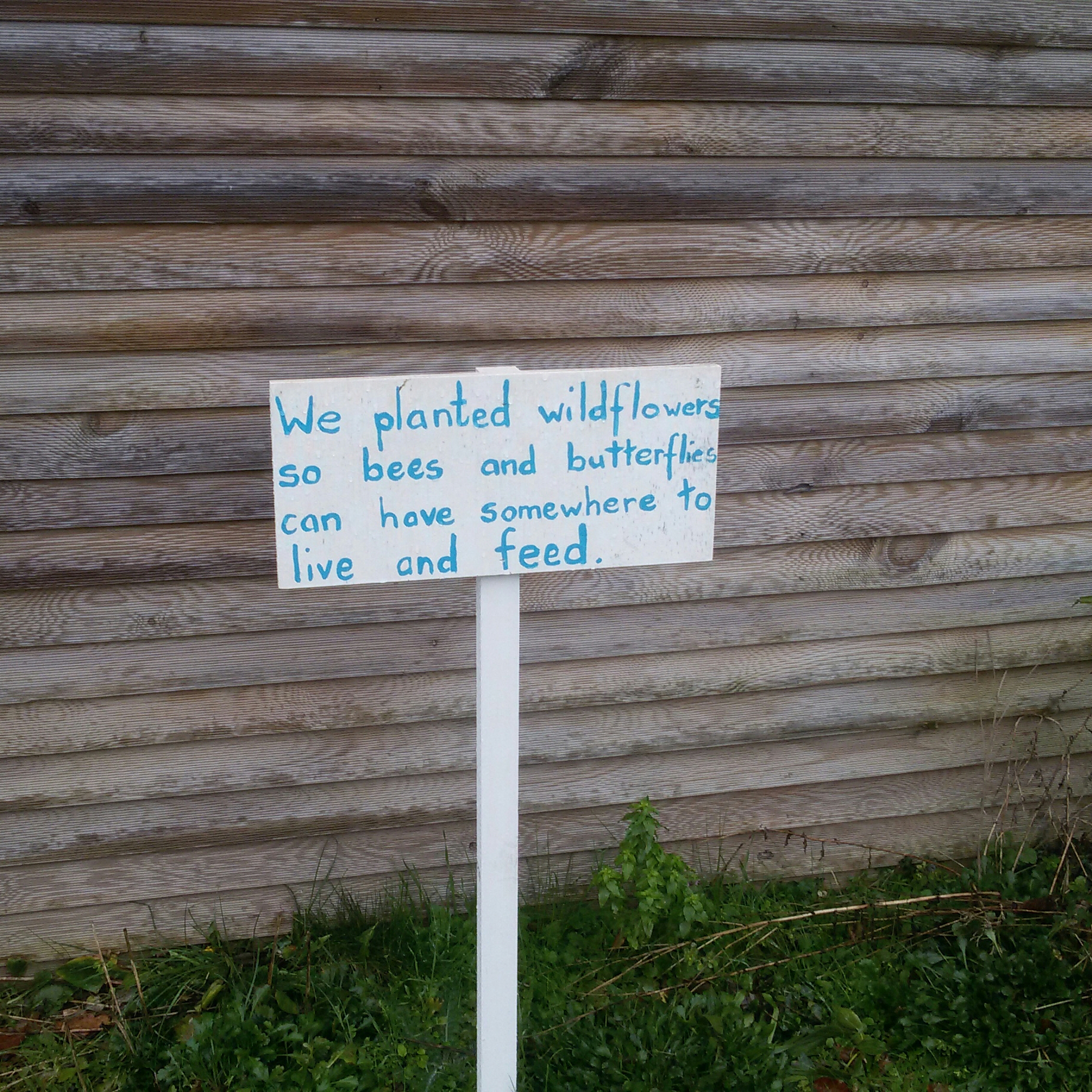
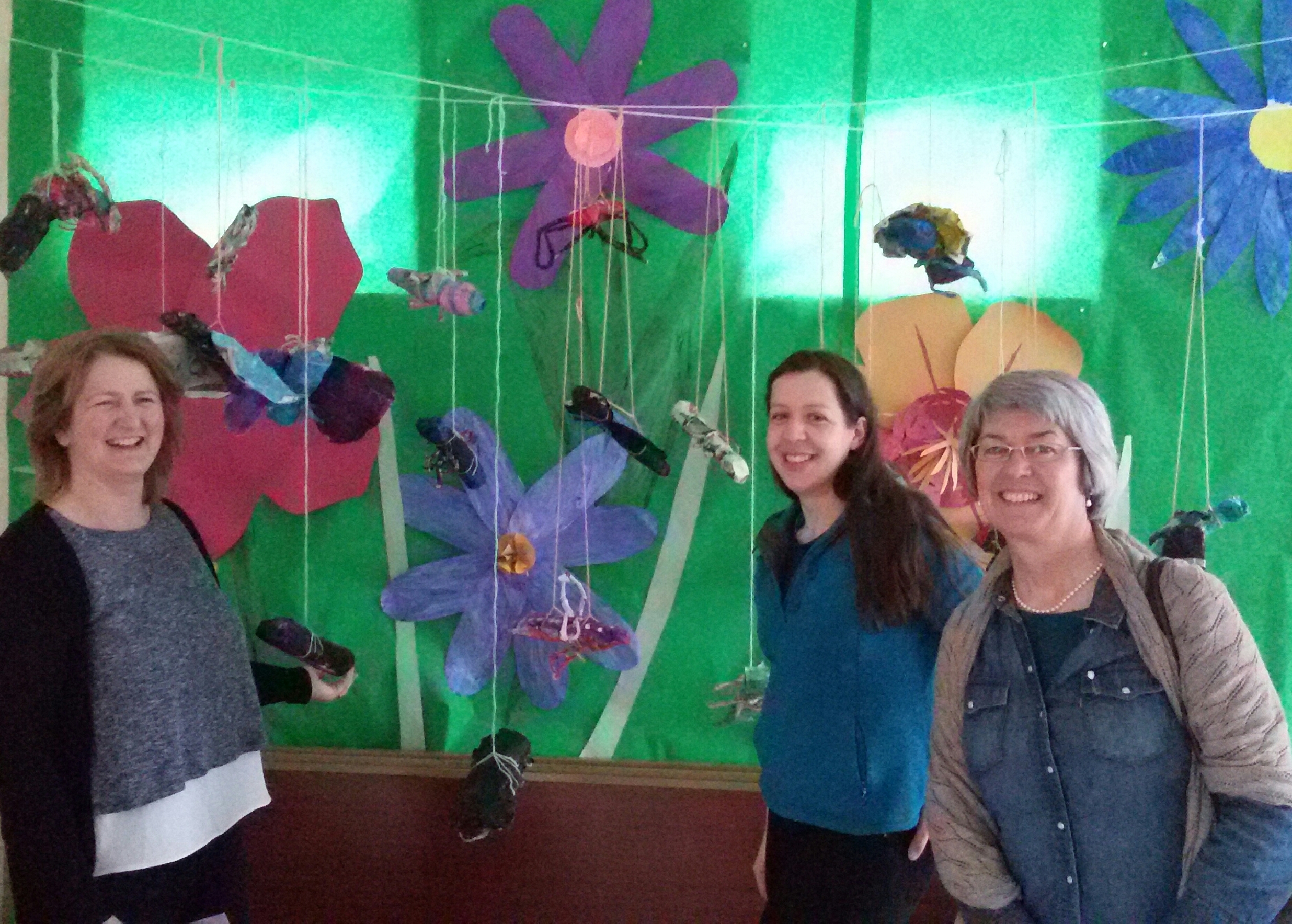
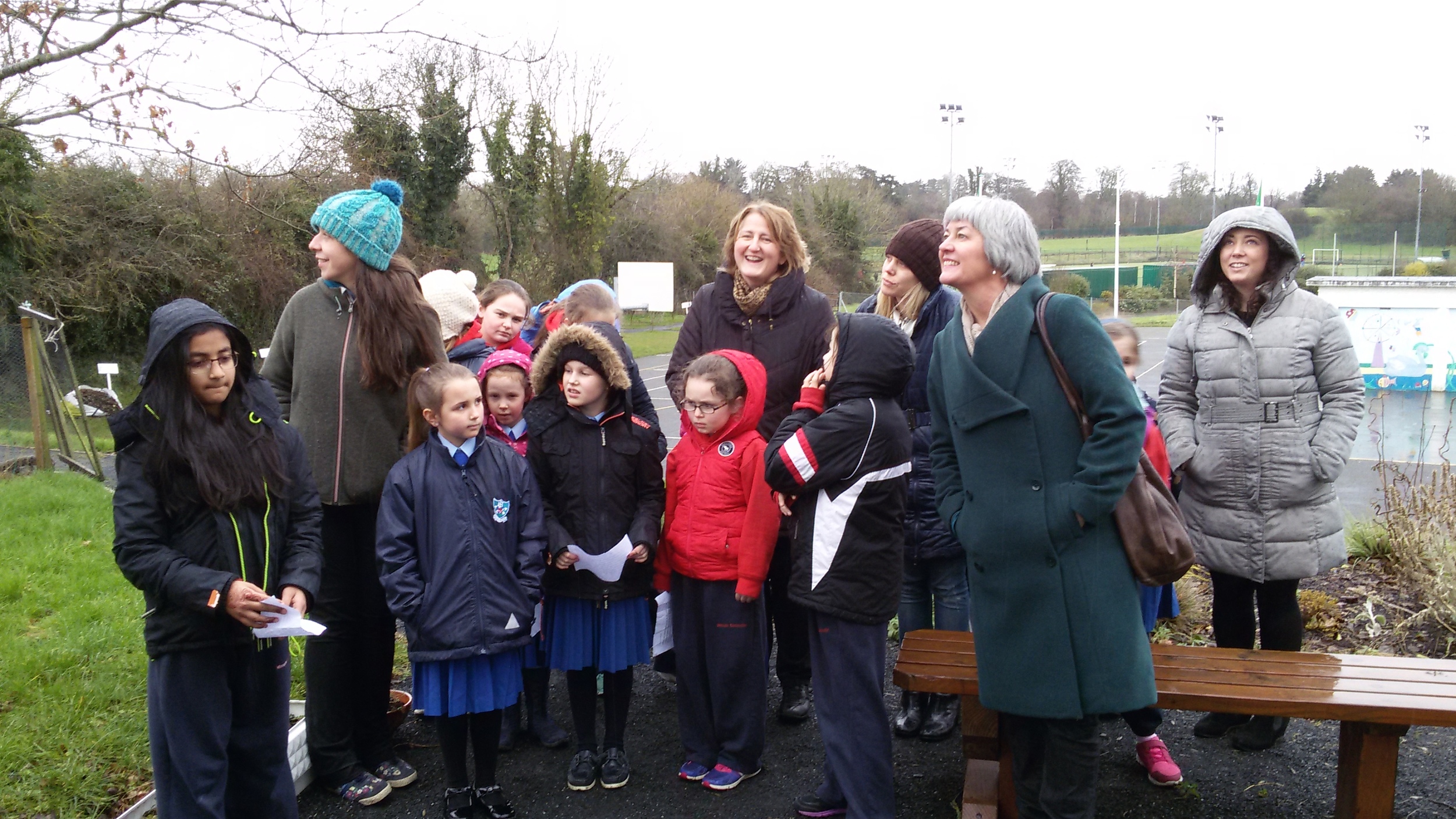
First Ever Eco-Schools Expo in Ireland
25 February 2016, Brid Conneely, International Eco-Schools Director and Rachel Boyle International LEAF Director attended the first ever Eco-Schools Expo in Ireland!
An incredible event organised by a fantastic team and attended by inspiring students and teachers from all over Ireland.
President of Ireland, Michael D. Higgins attended with his wife, Sabina Higgins and gave a powerful speech, praising the schools for their huge efforts and talked about the importance of 'reconnecting'.
Exhibitions from schools filled the hall and informative talks were held throughout the day. Evelyn Cusack, RTÉ weather presenter, Deputy Head of Forecasting at Met Éireann and Secretary of the Irish Meteorological Society finished off the day with an interesting talk on weather and the changes throughout time.
Principal of Eco-School in Wales nominated for The Global Teacher Prize 2016
Janet Hayward, Principal of Cadoxton Primary School, a Third Green Flag status Eco-School, is one of the finalists of The Global Teacher Prize 2016. The Global Teacher Prize is an annual $1US million dollar award that will be given to an exceptional teacher who has made an outstanding contribution to the profession.
The Varkey Foundation established the Prize in 2014 to raise the stature of the teaching profession. The award — dubbed the ‘Nobel Prize’ of teaching — operates under the patronage of His Highness Sheikh Mohammed bin Rashid Al Maktoum, UAE Vice President, Prime Minister, and Ruler of Dubai. The Prize underlines the importance of the teaching profession and symbolises the fact that teachers throughout the world deserve to be recognised and celebrated. The winner is chosen by the prominent Global Teacher Prize Academy made up of head-teachers, educational experts, commentators, journalists, public officials, tech entrepreneurs, company directors and scientists from around the world. The winner will be announced at the Global Education and Skills Forum in March 2016 in Dubai.
Janet has been the principal at two schools in Wales; both have achieved Eco-Schools status and shown long term commitment to the Eco Schools programme. As Head teacher Janet has always shown her support and just recently offered the use of facilities at her present school to host a local Eco-Schools teacher training workshop. The pupils and staff have taken part in many Eco-Schools topic activities from school ground development and growing food, to investigating transport and supporting healthy living choices. The school was a test case for solar-powered computers and boasts a computer suite run on renewables!
Due to her enthusiasm for engaging students through technology, in particular socially disadvantaged young boys who can be hard to reach with traditional teaching methods, both her schools became ICT pathfinders and have won several awards.
Janet has also set up a Lego Innovation studio that is shared between three schools and supports challenging STEM learning. Technology is used as a driver to engage learners in and between lessons, allowing them to collaborate and lead their own learning in a creative and ambitious way. Standards and attendance have steadily risen and student behaviour has improved.
Her students have led the consultation process for a grant funding application to extend the facilities of their Community Learning Café. The local authority was so impressed by the quality of their submission that the students have been asked to consult on the use of considerable redevelopment funds for their area.
The Foundation for Environmental Education (FEE) and Eco-Schools International commend the great work done by Janet and wish her all the best in her future career. She is already a winner to us!
The Global Scrapbook Campaign
Eco-Schools Finland are happy to announce that 23 scrapbooks are departing this week from Finland in order to bring greetings and joy to other Eco-Schools around the world!
The Eco-Schools Global Scrapbook Campaign, initiated by Eco-Schools Finland, will bring together 100 schools and kindergartens from different countries participating in the programme. The purpose of the campaign is to establish links between Eco-Schools and kindergartens in different countries as well as to spread joy and share stories about their life and Eco-School activities.
Kids in one of the Finnish kindergartens participating in the scrapbook campaign, curiously searching their scrapbook route on the map and learning about the world
Every year at the beginning of February, Eco-Schools Finland hosts a special festive day, when all schools participating in the programme are encouraged to spread joy and warmth
to others through creative and eco-friendly activities such as environmental art and shared outdoor days. This year it is also being done internationally!
This spring the scrapbooks will travel to 11 different Eco-Schools countries: Croatia, Turkey, Spain, Latvia, Belgium, Bermuda, Denmark, Northern Ireland, Australia, the Netherlands and Uganda
More info:
Ms. Iitu Kiminki
Eco-Schools Finland
iitu.kiminki@ymparistokasvatus.fi
WWF Eco-Schools Conference 2015
Environmental education is an important conservation method employed by WWF to advance its objectives. Success is measured by the ability of local organisations to design, adapt, and maintain their own environmental education programmes.
The internationally recognised Green Flag award rewards educational institutions for their environmental programme that empower students to be the change our world needs by engaging them in fun, action oriented learning experiences.
The first Eco-Schools Green Flags for Singapore were awarded at the annual WWF Eco-Schools Conference on 6th November 2015 to Ang Mo Kio Secondary School and Nan Hua High School. Congratulations!
The conference also featured keynote speakers Sid Das, Executive Director of Earth Hour Global, and Jonn Lu, Regional Director for Shark Savers Asia Pacific. Local, regional and global experts from Earth Hour, EarthFest, Ground-up Initiative and Coral Triangle Initiative, to name a few, were the conference theme influencers, and were also present.
They elaborated on the conference theme "YOU can be the CHANGE", urging students and educators to be the change our world needs. Apart from lunch time interactive engagements, there were several student and educator initiated forums, capability building workshops and plenary sessions for both students and educators. #bethechange
Young Climate Leaders in Jordan
The Royal Marine Conservation Society of Jordan (JREDS), in partnership with the German International Cooperation (GIZ), Ministry of Environment, and the Ministry of Education have initiated a project entitled "Young Climate Leaders; Autumn School".
This project aims to educate youth leaders about Climate Change, enable them capable of understanding and interpreting the information related to climate change, its consequences in Jordan, and develop visible solutions to mitigate the effects of Climate Change.
Activities include comprehensive training workshops by experts in climate change offered to students from 11 Eco-Schools in Amman. Training includes interactive games aimed to deliver a clear message, knowledge and linkages with the theoretical materials provided.
A competition between the participating students for the best scientific paper on Climate Change will be displayed in the final celebration.
Jordan will consider the Theme of Climate Change as part of the Eco-Schools programme in a framework of developing the implementation of the programme at the national level.
National Operator Meeting in Belfast, Northern Ireland
Keep Northern Ireland Beautiful hosted 100 delegates from 54 countries at the Foundation for Environmental Education’s Eco-Schools National Operator Meeting. They were welcomed to Northern Ireland with a reception at Stormont.
Front Row: Anna Lo MLA, Chair of the Environment Committee; David Weir MLA, Chair of the Education Committee; Daniel Schaffer, CEO Foundation for Environmental Education and Tony Wilcox, Chair of Keep Northern Ireland Beautiful.
Pictured from left to right are Dr Ian Humphreys, CEO Keep Northern Ireland Beautiful; Bríd Conneely, International Director of Eco-Schools; Daniel Schaffer, CEO Foundation for Environmental Education; Anna Lo MLA, Chair of the Environment Committee; and David Weir MLA, Chair of the Education Committee.
National Operators were welcomed to Northern Ireland with a reception at Stormont hosted by Anna Lo MLA, Chair of the Environment Committee and David Weir MLA, Chair of the Education Committee.
Pictured are L-R: Erdenbayar Shinetsetseg, Eco-Schools Mongolia; Anna Lo MLA, Chair of the Environment Committee; Nadezhda Morozova, Eco-Schools Russia; Chew Pei Jing, Eco-Schools Malaysia and Chitra Venkatesh, Eco-Schools Singapore.
Pupils from Lagan College, Belfast and Rainey Endowed School, Magherafelt were there to report on the proceedings.
L-R Nicolas Jamison, Lagan College; David Eagleson, Rainey Endowed; Dr Ian Humphreys, CEO Keep Northern Ireland Beautiful; Mark H Durkan MLA, Minister of the Environment; Daniel Schaffer, CEO Foundation for Environmental Education; and Amy McCloy, Lagan College.
Delegates had the opportunity to visit Belmont Primary School to see their excellent Eco-Schools work.
Pictured with Teddy Myles and Katie Walker from Belmont Primary School are Sukhprit Kaur, Eco-Schools India and Agnieszka Pabis, Eco-Schools Poland.
The international visitors enjoyed a trip to local Eco-Schools showcasing best practice including Belmont Primary School in Belfast who impressed with their knowledge of all things Eco.
International Conference 'Education as a Driver for Sustainable Development Goals'
The UN Decade of Education for Sustainable Development (DESD) has demonstrated that education can play a vital role leading to sustainable development. The UN DESD closed with an International Conference in Nagoya, Japan in November 2014 with the declaration of the Global Action Programme (GAP). The GAP has identified five priority areas to advance the Education for Sustainable Development agenda and enable strategic focus and foster stakeholder commitment. CEE is a key GAP partner to the priority area ‘Advancing Policy’. Every country and region would need to develop their own GAP agenda bringing in local perspectives and initiative.
In September 2015, the UN also launched the Sustainable Development Goals (SDGs), an outcome of global consultative processes. It is important for ESD communities to look specifically at each goal and determine how education can play an effective role in helping achieve this.
An international conference entitled 'Education as a Driver for Sustainable Development Goals' is being organised by the Centre for Environment Education (CEE), in partnership with UNESCO, UNEP and the Government of India.
The Conference will be organised from January 11-13, 2016. It aims at bringing together global experience and expertise to highlight and strengthen the role of education in realising the SDGs. It will be an opportunity to build upon the learning from the UN DESD and recognise Education as a key enabler.
The SDGs are applicable to the world as a whole. Increasingly, the emphasis has moved away from a solely economic view of development to a larger view that includes the three pillars of sustainability – environmental, social and economic. With this new emphasis comes also the recognition that policy instruments or technological solutions are not going to be enough and that behavioural change is crucial in achieving Sustainable Development. Thus the role of education in its broadest sense including training and capacity building, communication and creating public awareness, scientific research, sharing and access to information and networking; and partnerships become a key strategy for achieving the SDGs.
The objective of the Conference is to bring together the global experience and expertise of using Education as a way of achieving SDGs and showcasing the India experience in doing so.
Expected Outcomes
To apply the learning of the UN Decade of Education for Sustainable Development to develop programmes to achieve the SDGs
To look at how the Global Action Programme (GAP) on ESD can play a major role in the SDG strategy
To develop synergies and partnerships
For more details, contact Conference Secretariat at
Email: esdgconference@ceeindia.org
Website: www.ceeindia.org/esdg
450 Participants at the National Eco-Schools Conference in Slovenia
Attending the Eco-Schools national conference in Slovenia were 450 coordinators, mentors and principals plus international guests. The focus was on presenting the work and the programme for this school year, on sharing best practices and experiences of stakeholders’ involvement in Eco-Schools activities, and also on giving practical examples about how to include activities in the school curriculum.
International cooperation and projects
The opening speech at the conference was given by Dejan Židan, the Slovenian Minister for Food, Agriculture and Forestry. After that, international guests welcomed the participants: the Ambassador of the Netherlands in Slovenia, Bart Twaalfhoven, welcomed the participants and announced collaboration between the Dutch and Slovenian Eco-Schools programmes. The first Theme they will focus on will be water. Also, Rachel Boyle, International Director of the LEAF programme (Learning About Forests), officially launched the programme in Slovenia. It is expected that kindergartens and schools will participate in the programme and systematically approach the Theme of Forests.
Slovenian Eco-Schools’ coordinators, mentors, principals and supporters of the programme met at the beginning of the school year at the annual conference. The focus was primarily on the presentation of the work plan in which some new national and international projects are going to be launched. Particular attention was given to the exchange of knowledge, experiences and information between mentors. This was an important input for coordinators, as this school year all will particularly focus on the information, promotion and stakeholder involvement within the seven-step methodology approach.
The Round Table - “Experiences and lessons learnt from cooperation with the programme Eco-Schools and different stakeholders”
Market of best-practices and round table
Therefore, the programme for this year’s conference brought some interesting novelties: the so-called ‘market of best-practices’ was organised with the purpose of sharing good projects and ideas in order to adjust and implement them in different institutions. 25 kindergartens, primary and secondary schools presented projects, activities, results and products on several themes: food, water, energy, waste etc. Additionally, participants of the conference welcomed the organisation of a round table in which different stakeholders took part, namely: the mayor, the company’s marketing representative, the principal and the waste company expert. They explained their reasons for cooperating with the Eco-Schools programme and presented their best practices. The main conclusion and the message to the coordinators was that they should believe in their ideas and present them to different stakeholders in order to achieve the support for project implementation.
The Market of Best Practices
International cooperation and projects
The opening speech at the conference was given by Dejan Židan, the Slovenian Minister for Food, Agriculture and Forestry. Afterwards, international guests welcomed the participants: the Ambassador of the Netherlands in Slovenia, Bart Twaalfhoven, welcomed the participants and announced the cooperation of the Dutch and Slovenian Eco-Schools programmes. The first topic of this cooperation will be water. Also, Rachel Boyle, International Director of the LEAF programme (Learning About Forests), officially launched the programme in Slovenia. It is expected that kindergartens and schools will participate in the programme and make the topic of forest systematically approached.
Awards
Green Flags were awarded to new member institutions of the Eco-Schools programme and new national projects were presented. At the very end of the conference, practical lectures on the inclusion of the activities into school curriculum were given with the purpose of supporting coordinators to plan and successfully implement their ideas and projects as much as possible.
Lucija Marovt
Global Action Days November 2015
It’s that time of the year again. Time to act and help the environment! The Global Action Days is a campaign by the Foundation for Environmental Education to activate students and teachers to lead the change for a more sustainable world by getting involved in fun-filled, informative, activities.
Participating in constructive, meaningful actions helps young people to see the point of being involved, and aids their understanding of what they can do themselves to help the environment.
It’s all very simple. Plan your action, document the action by taking pictures, making a video or writing an article, register your school online and SHARE with the rest of the world on our Global Action Days Facebook group in the week of 9-15 November 2015.
Remember to ask your schools to include your country name or some other code in their posts, so you can then find everything happening in your country when using the search field!
The chosen theme for Global Days of Action 2015 is Climate Change because of the Climate Conference known as COP21 which takes place in Paris later this year. The conference is about all governments agreeing to a deal to significantly reduce man-made Climate Change. As Climate Change is such a huge topic, FEE believes it is the ideal theme to focus on in 2015.
All information on how to join this action can be found on www.ecoschools.global/global-action-days
#globalactiondays #FEE #EcoSchools
Eco-Schools Awards and Climate March in Latvia
On 25 September, with the start of a new school year, the annual Eco-Schools awards ceremony took place in Riga, Latvia. This was an event of celebrating achievements, exchanging experiences, acknowledging best practices and taking part in a joint action.
114 educational institutions - including pre-schools, primary, secondary, high-schools and even two universities (Liepaja University and Vidzeme University), received the Green Flag award. Another 47 schools, which are on their way to the highest award, received the Eco-Schools diploma.
After the opening words from the Eco-Schools jury, FEE Latvia and UNESCO Latvia, Eco-school representatives shared stories about their most successful campaigns and events from the previous year. Liepaja University’s Eco Committee had bicycle stands installed and marked all the light switches in the University to help save energy. There was a festival for exploring and learning about the biggest river in Latvia – Daugavatogether with other Eco-Schools which was organised by the Eco Committee of Aizkraukle Gymnasium. Teachers from the primary school CreKids explained how they set up a healthy lifestyle and nature exploration summer camp for kids
The event ended with participants walking together in a Climate March with flags and posters they had created together, to the Ministry of Environmental Protection and Regional Development.
The goal of the action was to remind the general public and the authorities about the shared responsibility of combating climate change in regard to the UN Climate Change Conference taking place this year in December, in Paris (COP21). At the end of the march, participants arrived at the ministry and put together a creative installation of painted rocks, making it into a slogan which calls for action. They were greeted by the Minister for Environmental Protection and Regional Development, Kaspars Gerhards, who expressed his gratitude and support to the Eco-Schools students and teachers, and acknowledged the importance of improving the environment.
FEE joins Global Alliance of higher education sustainability networks in Open Letter to Cop 21 Ministers
The collective voice of the world’s universities, colleges and students will be heard at COP21 when the United Nations Climate Change Conference takes place in Paris, France during the first week of December.
A global alliance of tertiary and higher education sustainability networks today jointly issued an Open Letter urging Ministers and Governments to acknowledge and strengthen the research and education role that universities and colleges play in addressing climate change. With networks on every continent pledging signatures, the global alliance already represents more than 3000 universities and colleges worldwide.
The Open Letter celebrates and confirms the critical role universities and colleges play in finding and implementing solutions towards climate change mitigation and adaptation and places it in the context of addressing wider issues of sustainability, including social and economic policies and practices.
Addressed to COP21 Ministers and Governments the letter also calls for more specific measures to be taken such as showcasing universities and colleges as living laboratories for climate change adaptation and mitigation, increasing support for trans-disciplinary learning, teaching and research approaches, and using university and college campuses and operations as a leverage agent to accelerate the transition to clean energy sources.
The Open Letter from the global alliance will be handed to COP21 General Secretary Pierre Henri Guignard on 14 October at the UNESCO Headquarters during the Higher Education for Climate Change Action Event. The event is hosted by The Higher Education Sustainability Initiative- HESI which was created by a consortium of UN entities UNESCO, UN-DESA, UNEP, Global Compact and UNU.
If you represent a university or college sustainability related network and wish to become a signatory to the Open Letter, please email john.north@grli.org or ipatton@eauc.org.uk before 9 October.
We hope you will join us in the effort and look forward to your response. You can view the letter here.
Eco-Schools in Northern Ireland Celebrate 20 Years at a Special Event
Eco-Schools Northern Ireland hosted a special event to celebrate the 20th Anniversary of the Eco-Schools programme in March 2015. Over 2000 school pupils, teachers and guests gathered to enjoy speeches, presentations, workshops, exhibits and awards.
The event organised by Keep Northern Ireland Beautiful, the environmental charity that operates the Eco-Schools Programme in Northern Ireland, was created to thank pupils and teachers for their unwavering dedication and to provide a forum to inspire new ideas.
Northern Ireland Eco-Schools have a number of reasons to celebrate. They were one of the first countries in the world to join the programme, and the first country to award a Green Flag, to Downpatrick Nursery School in 1994. In recent years the programme has been going from strength to strength and in 2015 Eco-Schools Northern Ireland were proud to announce that 100% of their schools are now part of the Eco-Schools programme and working their way towards Green Flag excellence.
Key speakers opened the event: Mark H Durkan, Minister of the Environment; Ian Humphreys, CEO of Keep Northern Ireland Beautiful; and Daniel Schaffer, CEO of the Foundation for Environmental Education, all congratulated Northern Ireland Eco-Schools on reaching this landmark moment and encouraged pupils to look to the future and continue to make Northern Ireland and the World a greener, cleaner place.
Eco-Schools were delighted to be joined at the celebration by Daniel Schaffer, CEO of the Foundation for Environmental Education and Bríd Conneely, International Eco-Schools Director. There were also guest Eco-Schools representatives from Scotland and the Republic of Ireland and pupils from the Republic of Ireland Eco-Schools attending.
Northern Ireland are now looking forward to hosting the Eco-Schools National Operators Meeting in November 2015 which will see representatives from FEE and the 59 Eco-Schools countries worldwide come to Northern Ireland to share good practice and discuss the on-going development of Eco-Schools for the benefit of young people and our environment globally. As the host nation Northern Ireland is eager to provide visitors with a rich and welcoming cultural experience and will showcase some of the great work being implemented in Northern Ireland’s schools.
A World First for Cork University Hospital as it Raises the Green Flag
On 8 April 2015, Cork University Hospital celebrated becoming the first hospital in the world to be awarded the prestigious Green Flag by An Taisce’s Green Campus programme on behalf of the international Foundation for Environmental Education. The flag was raised by Minister for State Kathleen Lynch, Department of Health. The Foundation for Environmental Education was represented by Mr José Archer, President of ABAE-FEE Portugal.
Key achievements in 2013 and 2014 for the CUH Green-Campus team include:
- Reductions in waste of 11% despite an overall 10% increase in hospital activity in that period. This includes a 205 tonne reduction in waste going to landfill, a 21 tonne decrease in clinical waste and a 77 tonne increase in recycling.
- 860 MWhr decrease in gas consumption
- 1,185 MWhr decrease in electricity consumption
- 785 tonne decrease in CO2
Patricia Oliver, Director of the An Taisce Education Unit, commended CUH on their efforts towards achieving the flag, citing the commitment of staff and students to the programme as well as crucial long term support from hospital management. Ms Oliver added: “A Sustainable Healthcare Environment Steering Group within CUH leads the direction of the hospital in reducingenergy, water and waste disposal costs. There is a strong feeling of togetherness and team work as everybody is moving towards making sustainable practices the norm and the way things are done across the CUH campus.
CUH’s CEO Mr. Tony McNamara said, “By creating a healthier environment for patients, staff and visitors, we are taking an important step in achieving the best outcomes for our patients and supporting community health.”
In 2010, University College Cork were pioneers in gaining the world’s first Green Flag for a third level education institute, an award that has been renewed on an annual basis ever since. As an acute teaching hospital and an academic partner with a Green Flag university, CUH were eligible to work towards gaining Green Flag certification and shared many environmental based projects with their UCC colleagues. CUH joins An Taisce’s national network of 21 third level Green-Campus colleges, ten of which have been awarded a Green Flag including:
- UCC
- Trinity College
- DCU
- Dundalk IT
- GMIT Mayo
- GMIT Letterfrack
- Ballsbridge CFE
- Coláiste Dhúlaigh Coolock
- Pearse College
